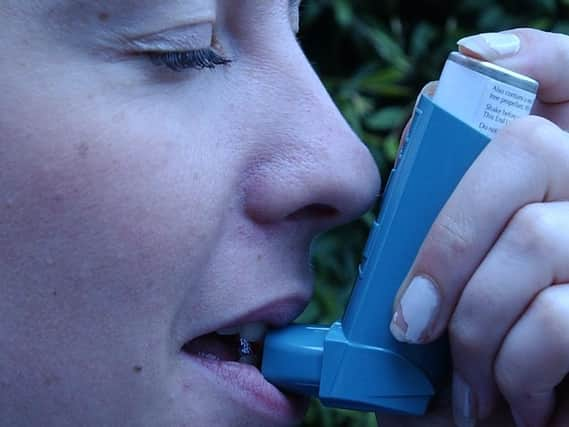An asthma drug is shortening recovery time in some Covid patients, an Oxford University trial has found


The inhaled drug budesonide shortens recovery time in non-hospitalised Covid patients aged over 50 who are treated at home and in other community settings, in a report by the Principle randomised trial of 1,779 patients.
Inhaled budesonide is a safe, relatively inexpensive and readily available corticosteroid commonly used around the world in inhalers to treat asthma and chronic obstructive pulmonary disease (COPD).
Advertisement
Hide AdAdvertisement
Hide AdPrinciple is funded by a grant to the University of Oxford from UK Research and Innovation and the Department of Health and Social Care through the National Institute for Health Research as part of the UK Government’s rapid research response fund. The trial has been led by Oxford University.
The trial findings have potential to change clinical practice globally and follow the smaller Phase 2 STOIC pilot study of inhaled budesonide, which reported in January 2021.
Early treatment with inhaled budesonide shortens recovery time by a median of three days in patients with Covid-19 who are at higher risk of more severe illness and are treated in the community. It was added to the Principle trial on 28th November 2020.
A total of 961 patients were randomly assigned to receive inhaled budesonide at home and were compared with 1819 patients randomly assigned to the usual standard of NHS care alone.
Advertisement
Hide AdAdvertisement
Hide AdThe results showed the estimated median time to self-reported recovery for inhaled budesonide was 3.011 days shorter compared to usual care. 32 per cent of those taking inhaled budesonide, compared to 22 per cent in the usual care group, recovered within the first 14 days since being randomised into the trial and subsequently have remained well until 28 days.
Participants in the budesonide group also reported greater well-being after two weeks.
Among patients who had completed all 28 days of study follow up by March 25, 8.5 per cent in the budesonide group were hospitalised with Covid-19 compared with 10.3 per cent in the usual care group. Since fewer than expected people were admitted to hospital in the trial and with Covid-19 cases and hospitalisations continuing to drop in the UK, it is not clear from this interim analysis whether budesonide reduces hospitalisations.
All patients were aged over 50 with an underlying health condition that put them at more risk of serious Covid-19 illness, or aged over 65.
Advertisement
Hide AdAdvertisement
Hide AdJoint Chief Investigator, Professor Chris Butler, a South Wales GP and Professor of Primary Care from the University of Oxford’s Nuffield Department of Primary Care Health Sciences, said: ‘Principle, the world’s largest platform trial of community-based treatments for Covid-19, has found evidence that a relatively cheap, widely available drug with very few side effects helps people at higher risk of worse outcomes from Covid-19 recover quicker, stay better once they feel recovered, and improves their wellbeing.
"We therefore anticipate that medical practitioners around the world caring for people with Covid-19 in the community may wish to consider this evidence when making treatment decisions, as it should help people with Covid-19 recover quicker."
Joint Chief Investigator, Professor Richard Hobbs, Head of Oxford University’s Nuffield Department of Primary Care Health Sciences, said: ‘For the first time we have high-quality evidence of an effective treatment that can be rolled out across the community for people who are at most risk of developing more severe illness from Covid-19. Unlike other proven treatments, budesonide is effective as a treatment at home and during the early stages of the illness. This is a significant milestone for this pandemic and a major achievement for community-based research."